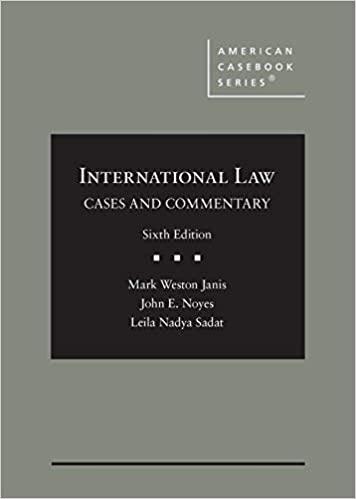Question
B enters into a contract to purchase goods from S. Both parties are sophisticated merchants and they have dealt with each other in similar contracts
B enters into a contract to purchase goods from S. Both parties are sophisticated merchants and they have dealt with each other in similar contracts for years. The terms of the contract are set out in writing that contain a clause stating that the writing is the complete and exclusive agreement of the parties. You should assume that the clause is effective. The writing does not state specify a delivery date but in each of their prior deals, S has delivered the goods within one week after the contract is formed. In this case, S delivers the goods two weeks after the contract is formed and B, who needed them within a week and can no longer use them, rejects them because the tender failed to conform to the contract. S sues for wrongful rejection and is able to prove at trial that two weeks was a reasonable time for delivery. B argues that this is irrelevant because the parties' agreement contained a one-week delivery term based on their course of dealing. If B attempts to introduce evidence of the course of dealing and S objects on the basis of the parol evidence rule:
Step by Step Solution
There are 3 Steps involved in it
Step: 1

Get Instant Access to Expert-Tailored Solutions
See step-by-step solutions with expert insights and AI powered tools for academic success
Step: 2

Step: 3

Ace Your Homework with AI
Get the answers you need in no time with our AI-driven, step-by-step assistance
Get Started


